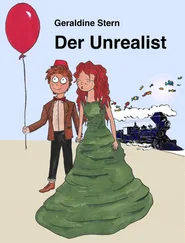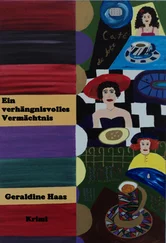1 ...7 8 9 11 12 13 ...17 It was not gone a quarter of an hour when I set off down the long dogwood-lined drive. While I had been Mr. Clement’s guest, May had given way to June and now that month was waning. The dogwood petals had fallen and the trees leafed out, offering some protection from a midday sun that already burned with the heat of full summer. I had gone only a little way toward the gate when I heard Mr. Clement’s voice, calling to me.
“A moment, Mr. March, if you wouldn’t mind. There is something you need to see before you leave us, if you would do me the kindness of one last indulgence.”
I felt relief at his words. I hoped they signaled that we might part on some terms, after all. I set down my trunks and followed. He turned toward the north path that led to the high-roofed tobacco barn where last year’s cured leaves had recently been hanging. Inside, I was surprised to see that all the slaves, house servants and field hands, had been gathered. Then I saw Grace.
They had laid her facedown upon a bench, her arms stretched out above her head, her two thumbs bound together and fastened to a rope that then passed the full length underneath the table and came up to bind her ankles. A wide leather strap passed over the small of her slender back and pressed her flat against the table. Below the strap, the lower part of her body was exposed, in a complete state of nature.
“Surely there is no need for this violation?” I said, my voice coming out high and cracked. Clement merely lifted his chin and turned to Mr. Harris. From a burlap sack the man drew out a braided leather whip almost as tall as he was. Then, moving to a spot about six feet from where Grace lay, he made a swift, running skip, raising the lash and bringing it down with a crack. The stroke peeled away a narrow strip of skin, which lifted on the whip, dangled for a moment, and then fell to the leaf-littered floor. A bright band of blood sprung up in its place. Her whole body quivered.
“For pity’s sake, man!” I exclaimed. Clement’s face was as cold and immobile as one of his sculptures. It was—though I grudge the sense of fairness which bids me set this down—almost as white.
The whip fell, again, with an almost delicate precision, the second strip taken just one inch lower on the buttocks, in perfect parallel to the first. Prudence was howling and had buried her face in Annie’s skirt. Clement raised his hand then, and I felt my body go limp with relief at the end to this terrible proceeding.
“Turn the child,” he said. “She must watch the punishment.” The cook untangled her daughter’s fingers from her pinafore, placed a hand on her wet cheek, and turned her face around.
“Proceed,” said Clement. Strip by strip the lash carved into Grace’s shuddering flesh. My tears were falling by then, heavy drops, joining in the leaf dust with the blood that had begun to trickle from the table. My limbs were so weak that I could not even raise a hand to wipe the mucus that dripped from my nose.
Finally, Clement raised his hand again. A column of sunlight from a missing board in the barn roof glanced off his signet ring. “Thank you, Mr. Harris. That will be all.” The man ran a gray cloth along the whip to clean the blood off it and replaced it in the bag. The women had rushed forward, one unbinding and kneading Grace’s hands as the others brought ewers of water to bathe her wounds. She had been lying with her head faced away from me. She lifted it then, and turned, so that we looked at one another. If an anvil had fallen from the sky at that moment and landed upon me, I could not have felt more crushed.
November 1, 1861
My dear,
Your very admirable letter and the welcome contents of your parcel came straight to hand. Many thanks to you for the warm wishes of the former and the warm wool of the latter. I rejoice to hear that you and my girls continue well as the cold season creeps onward; tell my dear Jo that she must not despise her knitting, but see her needles as jousting lances, for her fine blue socks are marching now into the fray. I wish there were some better returns for so much, than these lines I send in haste, for word comes that we are to move from this place shortly and there is much to be done in consequence. I for one will not be sorry to venture forth from here, and yet even in such a place as this, there may be found much uplift.
If anyone should continue to doubt, my dearest, the Negro’s fitness for emancipation, then let him come and stand by me in the field hospital, established in this house whose aged owner once used to boast of his descent from the Cavaliers. Indeed, “descent” is an apt word, for he is descended now, through a combination of caducity and destitution, to a very low condition. Most of his slaves ran off before the battle for this island, which preceded by a fortnight our ill-fated assault on the Virginia shore. There was but one slave who remained and, having volunteered to help our surgeon, worked tirelessly, with such deftness and dedication as seemed set to put him to the blush. In the days since then I have kept some note of the men she tended and most of them seem to mend better and more rapid than those under his care. The colonel acknowledges as much; he has offered to determine her “contraband of war” and to secure a place for her at a hospital in the capital—a wages-paying position, and this for a woman who has been a chattel slave since birth. But here is the cloth of gold from which her character is spun: she refuses to leave her frail master, stating that he is incapable of surviving without her. And yet I know that this very man once had her whipped for some most trivial transgression of his authority. What an example of Christian forgiveness! Some call them less than human; I call her more than saintly—a model, indeed, for our own little women. Who of course need no pattern more than their dear mother, she who radiates perfection, and to whom I happily proclaim my constant devotion…
I knew that I should snuff out my candle, in case its light troubled those injured men with whom I share floor space here, in what used to be Mrs. Clement’s sitting room. But I took a moment, before I did so, and drew out from my blouse pocket the small silk envelope I kept there. Carefully, I drew forth the locks and laid them in the circle of candlelight. One fat curl in gleaming yellow, tied with a bow of pink satin: my little Amy’s glory. A mouse brown wisp from my tranquil Beth. A chestnut swirl from Meg. And last, two thick locks, dark and lustrous. Even though the hair color and texture of mother and daughter were identical, I had no trouble lifting out Jo’s and setting it alongside her sisters’. My wild girl had hacked at her hair, so that the ends were all jagged, and tied it with a practical piece of string. I gazed at the girls’ locks for a long minute, imagining the four beloved heads, sleeping peacefully on their pillows in Concord. I placed them back in their envelope then and blew out the candle. The last lock I kept out. I held it against my cheek as I waited for sleep. But lying on the hard boards amid groans and snores, I found sleep elusive. And so I had time to consider why, among all that I had shared with her, I had never yet confided in my wife the tale of that unhappy Virginia spring.
To be sure, those events were several years behind me by the time we met. The guilt I felt, for having let myself be seduced by Clement’s wealth and decieved by his false nobility had eased, in time, from an acute pain to a dull ache. By then, I had little wish to recall the callow peddler who would turn over any dank stone in his quest for knowledge. Certainly, I was reluctant to admit to her—to her, of all people, for I soon saw the hot wrath with which she dealt with like cases—that I had suffered, even fleetingly, from moral blindness on the matter of slavery; that I had averted my young eyes in order to partake in a small share of that system’s tempting fruits.
Читать дальше












